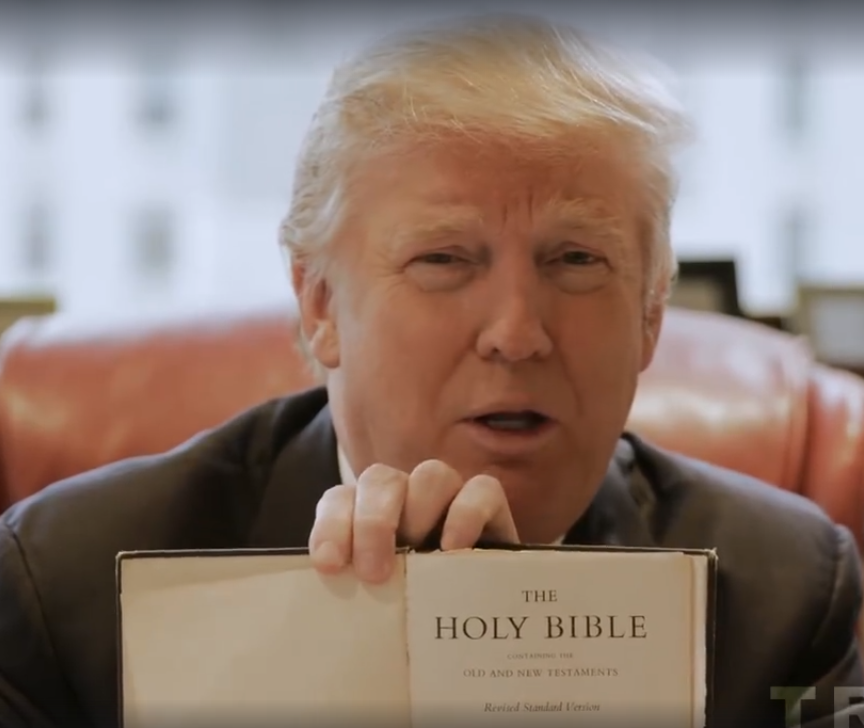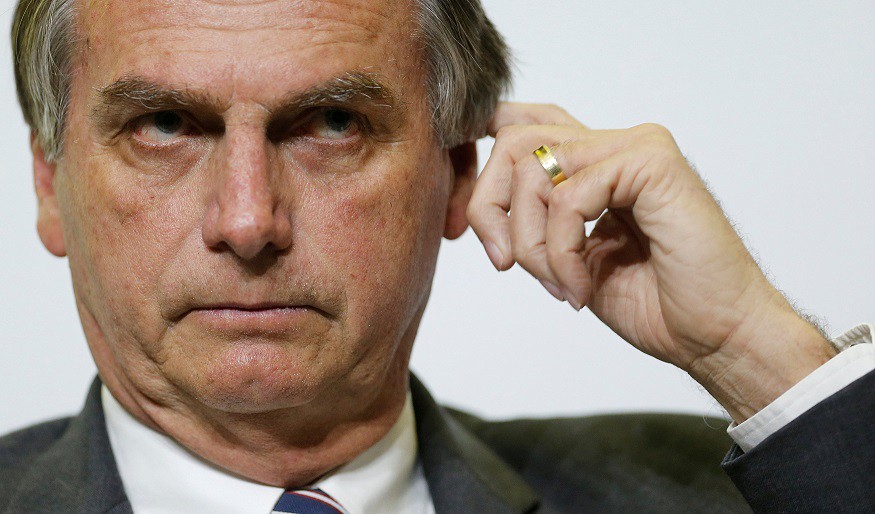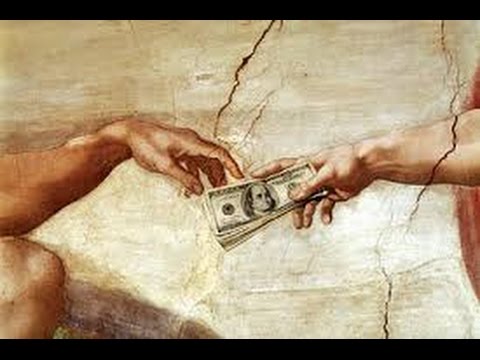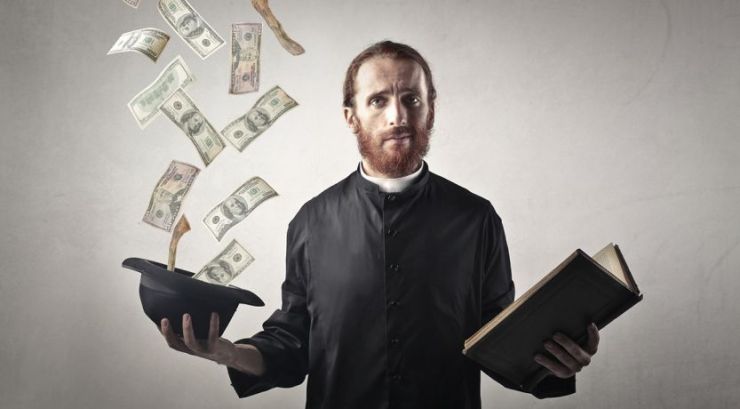In general, the concept of the “Holy Trinity” is limited to mainstream Christian beliefs. However, for the conservative right, I suspect that things are far more abstract and complex than they appear.
If one were to close their eyes and envision a representative of the right-wing conservative base (from the United States in particular), what are some of the standard images that may float across that person’s mindscape?
Religious fanaticism, anti-abortion, anti-gay marriage, “Patriotism,” Fox News, anti-immigration, the Bible Belt, CPAC (the “Conservative Political Action Conference”), “The 700 Club,” the NRA and having unwavering support for U.S. foreign interventions. These are aspects of the archetypal Christian conservative in a nutshell.

And when it comes to their religious and political convictions, few are louder and prouder than they are. They assert that their faith is rock-solid and that their way is the “true” way—that anything contrary to their politics, that anything incongruent with their worldview—is a path leading to disaster.
But if you compare and contrast their political beliefs versus their (supposed) religious beliefs, you start to notice a trend: that any accusations of bigotry, misogyny, homophobia or Islamophobia are smugly waved away with declarations such as “As a god-fearing American,” ad nauseam.
Being against immigration (specifically immigrants of the Muslim variety), they begin by appealing to the fears many Americans have about foreigners coming over to terrorize the nation. If that doesn’t work, they subtly suggest that the “culture” (Islamic faith) of the immigrants will make assimilation difficult.

When pressed, they double-down and assert that because America is a “Christian nation” led by “Judeo-Christian” values, the immigrants shouldn’t be allowed in—not because of the anti-Muslim hatred being dog-whistled to the audience—but because it would be detrimental to immigrants in the long run.
So, thanks to the shield of their faith, they can successfully veil their anti-Muslim bias beneath a cloak of sociopolitical concern for both American citizens and potential immigrants that may face a culture shock of sorts once they arrive on U.S. soil.
Never mind that they’ve blatantly ignored the phrase “Love Thy Neighbor.” At best, people will retweet their hot takes in disgust, leading to angry comments on the pundit’s timeline. At worst, Fox News’ Tucker Carlson might have the pundit on his show to discuss “the birth rates” and “western culture.”
I’m not doubting that many on the right are sincere in their religious convictions—in fact, staunch conservatives such as Pat Robertson and Ben Shapiro (representing Christianity and Orthodox Judaism, respectively) have been consistent with their views.
However, their unwavering support of capitalism, low taxes for the rich, dismissal of the poor, hollow appeals to the working class, disregard for issues that affect minority groups and implied wishes for a return to 1950s-era America—leads me to believe that there’s more at play here.
It is in my assessment that yes, the Christian right truly are religious, unlike many in my political camp who (rightly) brand them as hypocrites. But the religion in question is not Christianity—it’s capitalism.
And in this religion, the “Holy Trinity”—the “Father,” the “Son” and the “Holy Spirit”—have far different meanings.
Let’s begin our analysis with the “Father,” who I see represented as the rigid, tough-talking, right-wing politician within the economic system (religion) known as capitalism.
The “Father” (The Authoritarian Leader)

If you analyze the right side of the political spectrum, be it the mainstream, suit-and-tie crowd seen bumping shoulders with business tycoons, or the far-right with Breitbart subscriptions and “Pinochet Did Nothing Wrong” t-shirts, you’ll notice a not-so-subtle fetishization of strong-armed authoritarian leadership.
Within the political philosophy of conservatism itself, one of it’s key defining traits is an unquestioned loyalty toward those at the top of the socioeconomic power structure. The status quo is vehemently upheld and defended without a second thought.
Among the more tepid right (so to speak) is the glorification of Ronald Reagan, the military, foreign invasions and now, after some initial push-back early on, a willingness to defend Donald Trump at all costs.
For those on the (steadily rising, thanks in part to former Trump cabinet member Steve Bannon) far-right, this fetishization becomes more perverse, as in addition to Trump, figures such as Mussolini and Hitler are propped up as heroic figures.
The classical image of God (the “Father”) is manifested physically through the right-wing leader. His word is law and his rule is just. The father (leader) knows exactly what is right for his children (supporters) and any dissent will be quickly snuffed out and exemplified for all to see.
The father knows all and dare not be questioned. Those who appease him will be rewarded, those who oppose him will suffer the consequences.

When one is reminded that many evangelical Christians (a very loyal voting base for republicans since the 1980s) voted for Trump in the 2016 election, it becomes apparent how they innately viewed him as a representation of God—the voice of “reason” in a country rife with “political correctness.”
In the religion of “Capitalism,” compared to Christianity, the stern, strict status-quo-imposing leader/president assumes the role of the metaphysical “Father.”
For the conservatives who are close to the father’s tax bracket, he provides financial security in the form of tax breaks and the stripping away of business-related regulations. For the conservatives who are poor yet miraculously support a party that in no way truly cares about them, they seek protection from the “other” (immigrants, minorities, etc).
The “Son” (Currency)

Unlike the “Son” as represented by Jesus Christ, the “Son” under capitalism is currency, the physical presence that we come in contact with on a daily basis.
Much like the presence of Jesus himself, those who are in frequent contact with money (the rich) are “blessed,” and those who are kept at a distance from abundant wealth (the poor) are in “hell,” denied access to heaven and its pearly gates.
There is no greater example of this than in any observation of prosperity (capitalist) preachers. Countless followers place themselves inside of packed churches (sometimes literal stadiums)—many of whom have fallen on tough financial times and are struggling to make ends meet—to pray for “blessings.”
The preacher, wearing an expensive suit and thousand-dollar watch, leads them in mass prayer, praying to “Jesus” (the quotes here denote representation, not mockery) for a financial windfall to aid them.

But who are they truly praying to? In this case, it’s not Jesus—it’s money.
If you view capitalism as a religion, Jesus represents money, the physical object that each follower of the religion prays to and hopes to meet and form a close bond with (i.e. have in abundance).
According to prosperity gospel, as long as you stay strong and keep the faith (in capitalism), you too can become blessed (rich) just like your preacher is. For a fee of course.
The Holy “Spirit” (Capitalism)

Just as the holy spirit in Christianity refers to God’s metaphysical, abstract nature, the theory of capitalism itself fulfills this role.
This spirit is ever-constant and unpredictable. The crop famines and natural disasters of the physical world are replaced by the “Boom-Bust” cycle of the financial world as priests (financial analysts in this sense) contend with explaining this phenomena to the general public.
When millions of American lives are negatively impacted, when people are rendered homeless, when average working-class citizens lose everything while a select few live extravagant lives in abundant wealth, it’s often chalked up to the “market” (God’s Will).
As long as the market is worshiped, those of the capitalist faith proclaim that the lowliest peasant can hope to be blessed by the spirit with just a little prayer (praise of the capitalist system) and some tithing (gambling in the stock market).
Just as the “Invisible Hand” (a term coined by the economist and “Father of Capitalism” Adam Smith) can provide one with gifts and good fortune, it can also strangle the downtrodden and deliver an unexpected gut-punch.
Conclusion

When viewing the religious right through this philosophical lens, all pretense, claims and fronts offered by conservatives start to dissolve, and their ideology becomes much clearer. And with this comes a secondary insight into American society, which could explain the rising support of socialism in the nation.
An insight which is to say that perhaps socialism—metaphorically—could be personified as the “Renaissance” coming around the bend to free our society from the quasi-feudal rule that we currently find ourselves under, with capitalism representing the “Dark Ages?”
When you look at the greed, selfishness and hypocrisy of the religious right, you start to realize that the true religion of Christian conservatives is not Christianity.
It’s capitalism.
Quinton Bradley
Intern

